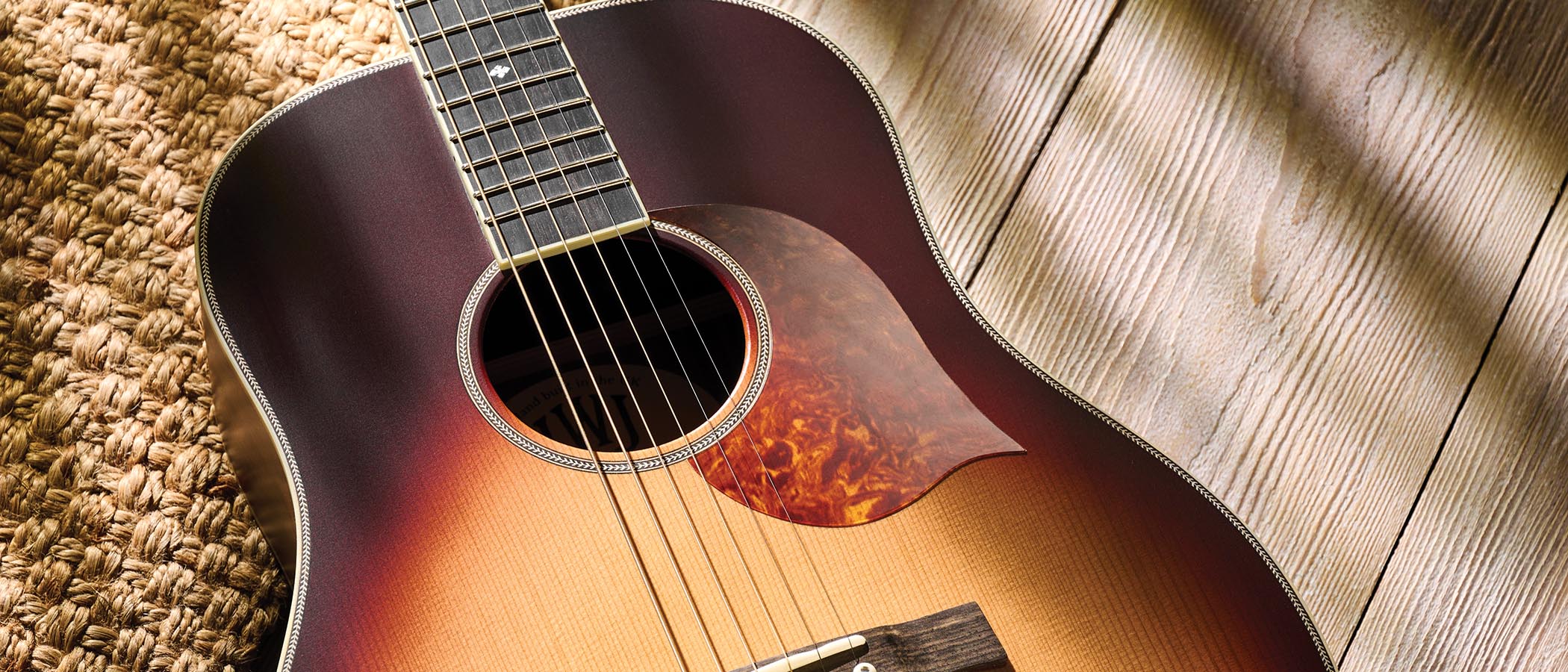What makes a great gigging guitar, and should you upgrade?
We delve into whether or not you should modify or replace your beginner electric guitar ahead of your next live show

All the latest guitar news, interviews, lessons, reviews, deals and more, direct to your inbox!
You are now subscribed
Your newsletter sign-up was successful
BACK TO LIVE: Last year you suddenly found yourself with a lot of time on your hands and an urge to do something productive to fill the days. So, naturally, you bought a beginner electric guitar. You’ve been practicing every day, putting in the hours, and playing through the pain. Luckily, all your hard work - and questionable renditions of Mustang Sally - has culminated in you landing your first gig, but is your electric guitar up to the task?
While your beloved entry-level guitar will be totally fine for a one-off show, or a couple of appearances at your local open mic night, the truth is beginner guitars aren’t designed to stand up to the harsh conditions of gigging. You don’t want to find yourself backstage scrambling to fix your guitar, that you assured everyone was “working fine a minute ago” with nothing more than a rusty old screwdriver and a roll of electrical tape - yes, these things actually happen to us gigging guitarists, and more often than we’d like to admit!
Here we're going to delve into what makes a reliable gigging guitar, what to look for in your new axe, and discuss whether or not to modify your current instrument.
What makes a guitar giggable?

On the road, our guitars go through a lot. From being thrown into the back of a van, to getting knocked around on stage by clumsy bandmates, and even just being played furiously for hours each night. All this takes its toll on an instrument, and quite simply, the entry-level guitars usually can’t take it. We know you aren’t exactly about to play Carnegie Hall, but that doesn’t mean you can’t have a reliable gigging companion. So what should you be looking to upgrade on your current guitar, and is it worth it?
Hardware
If there’s one thing that lets beginner guitars down, it’s the hardware. When we say hardware, we mean the bridge, tuners, jacks, and knobs. They can take quite the beating at a gig and are usually the first thing to fail. So, it's worth making sure all the hardware on your guitar is up to scratch. A sturdy set of tuners will ensure you stay in tune throughout the entire song. A quality jack is less likely to fail on stage and start crackling or, worse yet, cut out. While a well-made bridge will make sure your guitar not only has adequate sustain but will also minimize string breakage - trust us, changing a string on stage while a crowd of people watches you is one of the most stressful situations you can find yourself in - so anything to reduce the likelihood of this nightmare is worth it.
Pickups
The pickups on an electric guitar are the main generators of tone, and a sub-par set will result in a sub-par sound. A cheap set of pickups can present myriad issues, but most commonly, they can be the number one culprit of excessive noise, as well as a weak tone.
There are more replacement pickups out there than you can shake a stick at, from the best pickups for metal to the ultimate single coils for funk. There is a pickup set out there for every situation, and to be honest, which one is right for you is really just a matter of taste.
All the latest guitar news, interviews, lessons, reviews, deals and more, direct to your inbox!
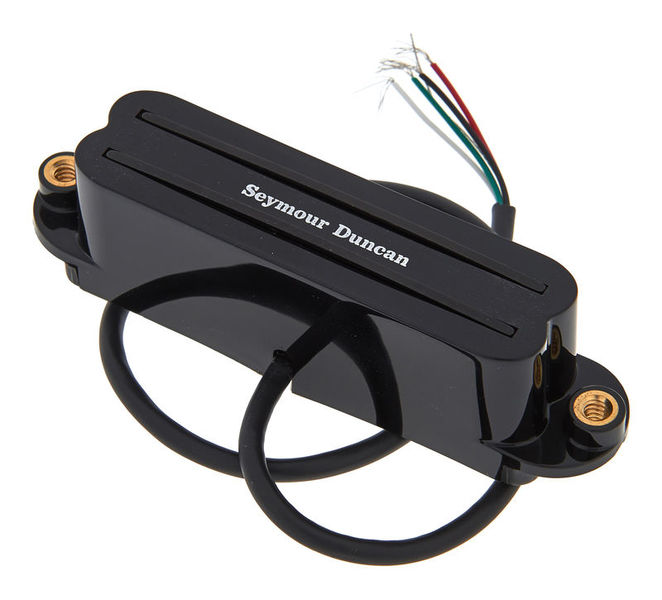
If you want to beef up your Strat, but don’t want to route your guitar, and buy a new pickguard, then look at the Seymour Duncan Hot Rail. For classic PAF-style humbucker tones, you can’t go wrong with the Seymour Duncan '59.
If you’re going to change the pickups, make sure you check the sizing and whether you need an F-spaced or a Gibson-style pickup. This is in reference to the pole pieces and the string spacing. If you're unsure, check the manufacturer’s website.
Playability
So, next up is the guitar’s overall playability. If you’re going to stand up on stage, and give it everything you have, then your guitar can’t get in the way. Entry-level guitars can have issues with sharp frets, dead spots on the neck, as well as rough edges, where maybe the guitar hasn’t been quite finished correctly. Most of these issues can be taken care of by a trained luthier or guitar tech. The price of this service can vary wildly, so it’s always worth asking for a quote before the work is carried out. You may be tempted to try this yourself, and while every guitarist should know how to adjust a truss rod and make alterations to their bridge, it’s best to leave fret issues to a trained professional. Even after playing guitar for 19 years and gigging my entire adult life, I still leave this to a guitar tech.
Should I mod, or should it go?
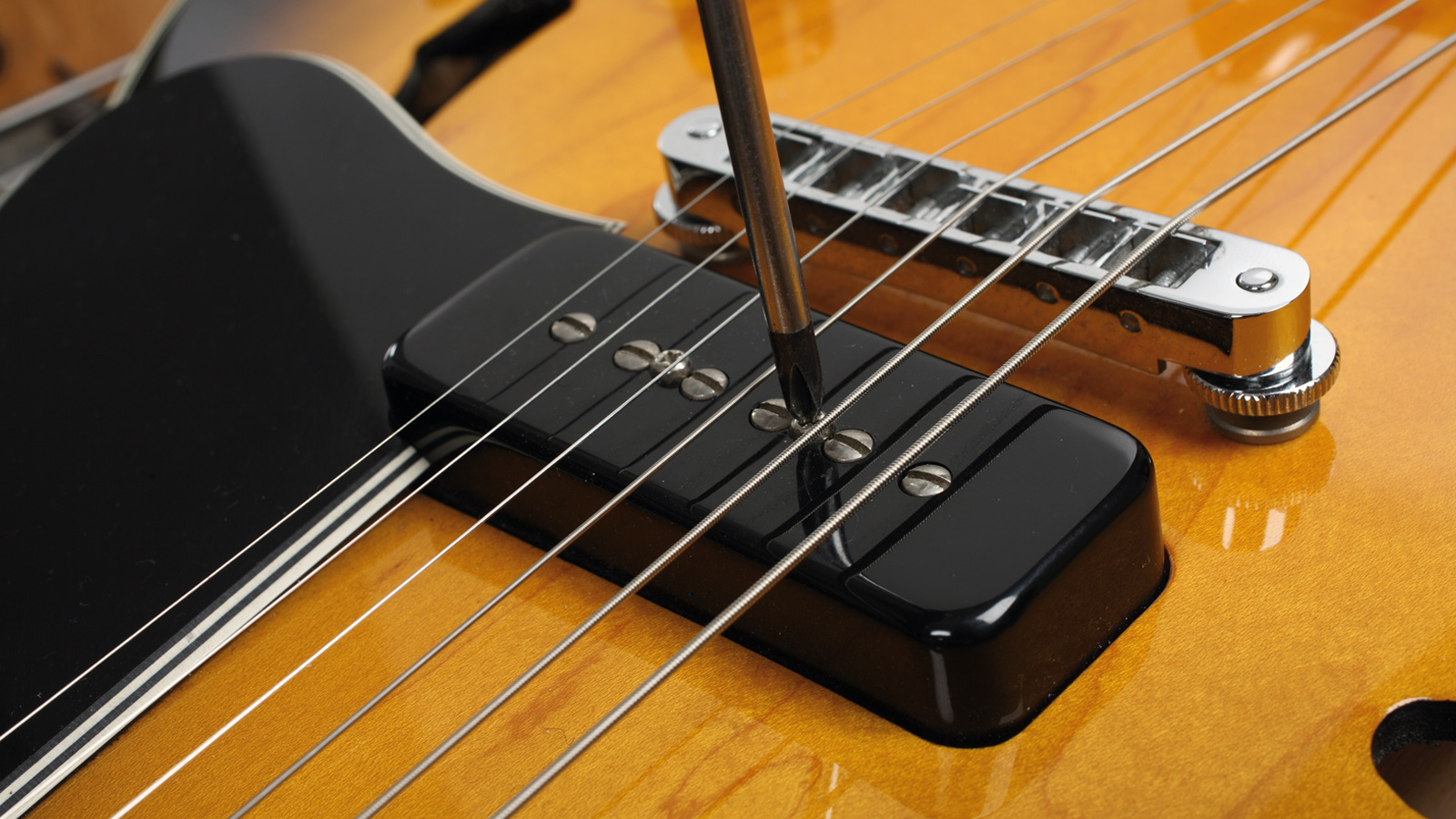
So, with all that being said, is it worth kitting out your beginner guitar with a bunch of upgrades? The unfortunate truth is, there isn’t really a definite answer. It all depends on which guitar you start with. Suppose, for argument’s sake, we assume you started with one of the most popular beginner electric guitars of all time, the Squier Bullet Stratocaster. In that case, we’d say there isn’t much point in spending an excessive amount of money upgrading its individual parts.
The cost of upgrading a guitar can spiral out of control pretty quickly and become a black hole of disposable income. Before you know it, you’ve spent upwards of $/£500 on new pickups, machine heads, bridge, and jack-socket, and at the end of the day, the main shell is still an entry-level guitar made out of inferior materials.
Now, you may have a guitar that isn’t a complete beginner’s instrument, and in that case, it may benefit from only one or two upgrades. In that case, it’s definitely worth it. We suggest weighing up what exactly needs to be done to get your current guitar up to gigging standard and price all the individual parts - don’t forget the cost of fitting - and if it’s going to be more than a good quality new guitar, then maybe buying new is the way to go.
Buying a new guitar
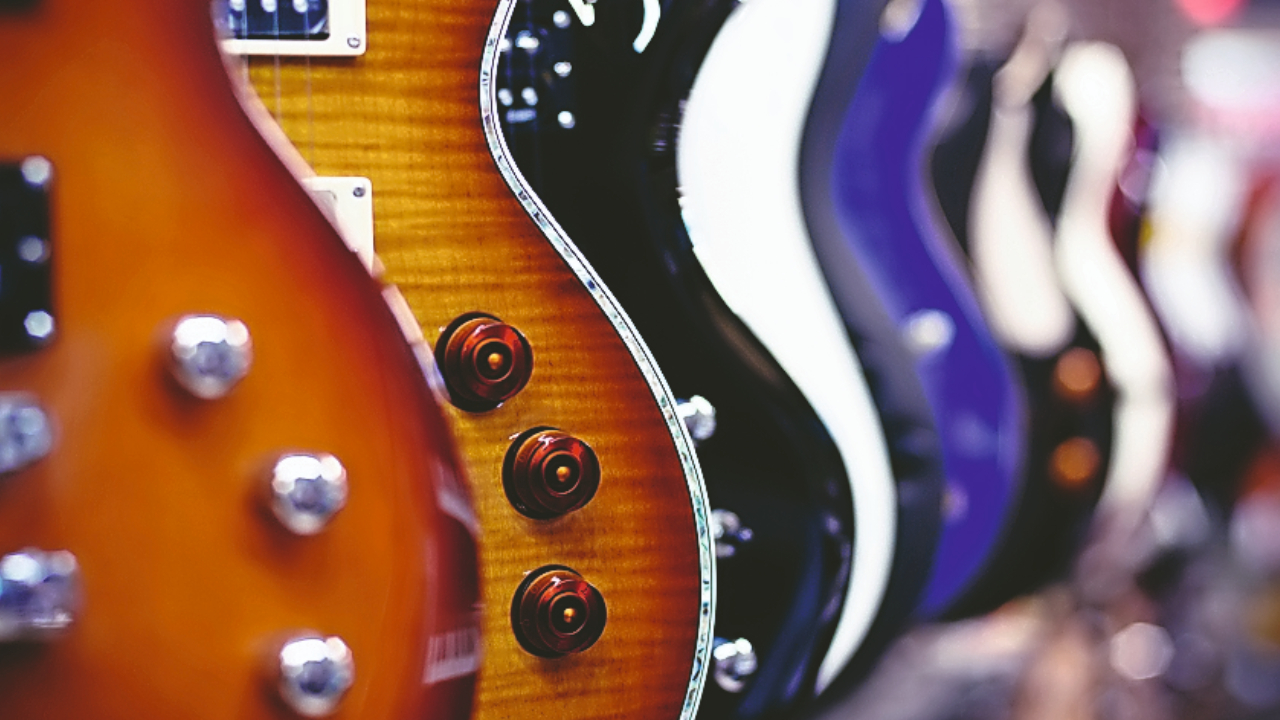
If modifying your current axe isn’t cost-effective, then buying a new guitar is the next logical step. It can be very intimidating looking for your next guitar, there are many options available to you at various price points, and it can get overwhelming. The second guitar - or first gigging guitar - is the one most people find the hardest to purchase. Many players get into their own heads and start to talk themselves out of a great new guitar. This can be because they think they “aren’t good enough” or they're “not a real guitarist yet.” Now, this line of thinking doesn’t help anyone. First of all, you are good enough, and you're getting better every day - providing you practice, of course! You shouldn’t buy a guitar based on your exact ability that day. Instead, buy a guitar that is future-proof. You want your new instrument to grow with you over time.
In terms of a budget, we’d say look at guitars upwards of $/£500. This will get you out of the beginner category and into intermediate guitars. That’s not to say there aren’t great guitars below this price point, but it’s an excellent place to start. When choosing your new guitar, think about all the areas we’ve highlighted above. You want your guitar to have a good set of pickups that are appropriate for the style of music you want to play, hardware that’s hard-wearing, and a comfortable neck with no fret issues. It’s also worth considering the weight of your new guitar. While your heavy guitar might be totally fine for a quick half-hour set, it may be impossible to stand up with it for a full three hour set.
At this price point, you’ll usually find these instruments are ready to go right out of the box, with only minor tweaks needed to get the guitar playing precisely as you like it.
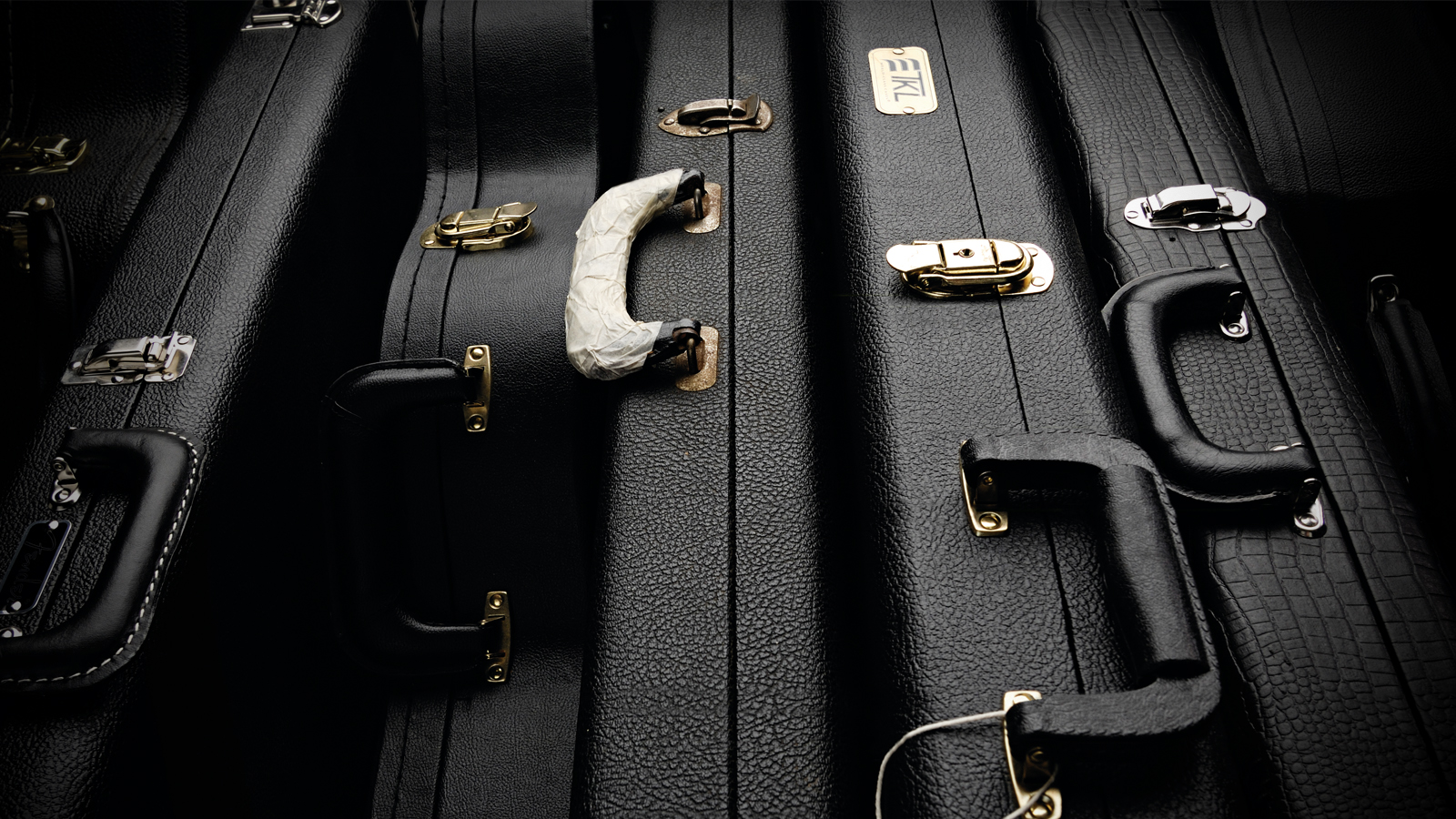
Once you've selected your weapon of choice, it's important to stock up on the essentials. A good quality strap can make all the difference to how comfortable you feel on stage - especially if you have a Gibson Les Paul hanging from your shoulder for a three-hour set. So choose your new strap carefully - check out our handy guide to the best guitar straps for our recommendations.
Most importantly, you're going to need a sturdy guitar case to protect your new guitar from bumps and knocks while in transit. Now, generally speaking, there are two options available to you - hard case or gig bag. Obviously, a hard case will offer the best protection overall, but it's worth keeping in mind that they are heavier and often don't have as much space for storing your tuner, spare strings, and capo. On the other hand, gig bags may offer less protection but are lighter and have more pockets than a military backpack. No matter which you choose, just make sure it's a good fit. There shouldn't be too much wiggle room in the case, you want it to be a nice snug fit.
Recommendations
For the Strat players out there looking for an upgrade, look no further than the Fender Player Stratocaster. This relatively affordable guitar features everything you need in a Strat and comes out the box ready to hit the stage. For the humbucker devotee, the Epiphone Les Paul Standard or PRS SE Custom 24 are fantastic options for the money and surprisingly versatile. Finally, if metal is your thing, and you’re looking for a doom machine, then the Ibanez RGRT621 certainly brings the power and will definitely stand out on stage. Obviously, there are many, many more guitars out there, but these are a great place to start.
So, there you have it. These are our top tips when it comes to upgrading or replacing your beginner guitar to something giggable. Now get out there and bring the house down!
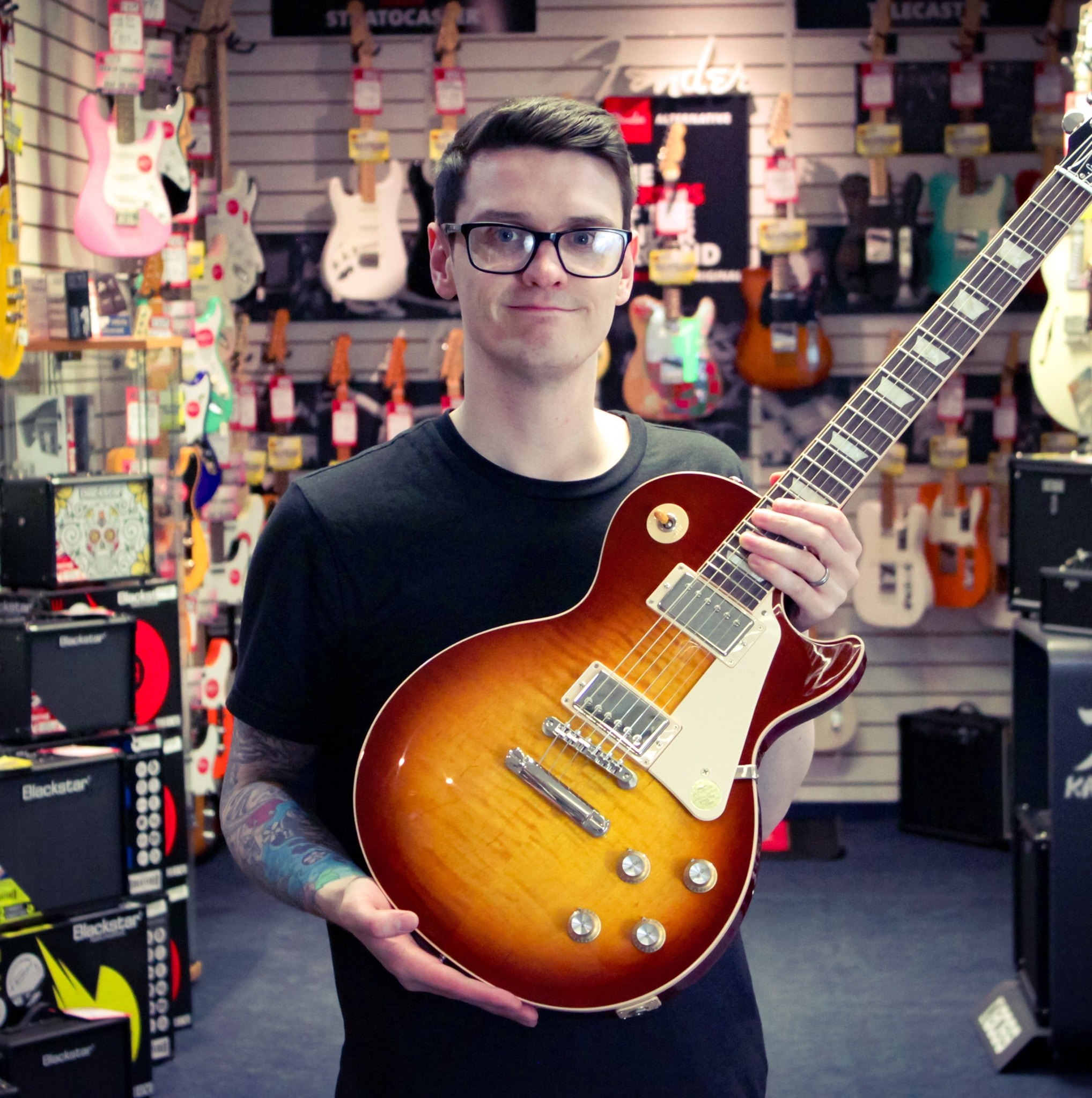
Daryl is a Senior Deals Writer at Guitar World, where he creates and maintains our 200+ buyer's guides, finds the best deals on guitar products, and tests the latest gear. His reviews have been featured in prominent publications like Total Guitar, Guitarist, Future Music magazine, and MusicRadar.com.
During his career, he has been lucky enough to talk to many of his musical heroes, having interviewed Slash and members of Sum 41, Foo Fighters, The Offspring, Thrice, and more. In a past life, Daryl worked in music retail. For a little under a decade, he advised everyone from absolute beginners to seasoned pros on the right gear for their needs.
Daryl is a fully qualified sound engineer, holding a first-class Bachelor's degree in Creative Sound Production from the University of Abertay.
